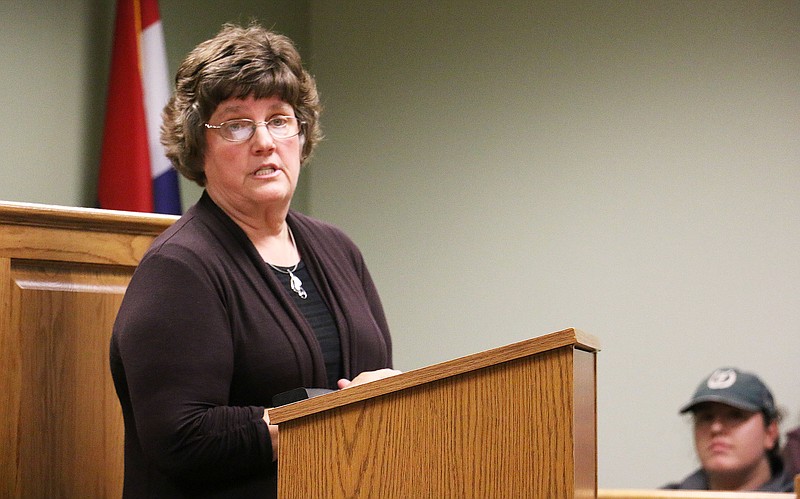FULTON, Mo. -- Lisa Dority told a group in Fulton that she didn't expect animals to be such a large part of her life, but due to her involvement with the National Animal Cruelty Investigations School, educating others about animals has become her job.
Dority is an educational program coordinator with the National Animal Cruelty Investigations School, which is part of the law enforcement training institute at the University of Missouri-Columbia. She spoke about the program at William Woods University Monday night.
An animal cruelty investigator is in charge of taking reports about animal welfare concerns as well as researching and investigating those concerns. They determine whether a crime involving animal cruelty has been committed. That role can be found at local law enforcement agencies, vets and animal shelters as well as other agencies.
Dority said it is imperative that all of these agencies work together when it comes to animal cruelty cases.
"Everybody has their spot on the puzzle," Dority said. "If you can get these relationships built, it's best for everybody."
She said now the program sees representatives from law enforcement, animal control, humane societies and other agencies. That is a change from when the school was started 24 years ago. At first, the program saw strictly animal control and humane society employees. Half of the students today, Dority said, are from law enforcement agencies. That is a change she has noticed in the past eight years.
The public is more aware of animal cruelty and neglect today than they were when the school started 24 years ago, Dority said. That increased awareness is what Dority believes has led to an increase in law enforcement participation in the program.
"The public is asking that animal crimes be investigated more thoroughly," Dority said. "Across the nation, animal crimes are coming to the forefront ... It's time for that now."
When the National Animal Cruelty Investigations School was founded in 1990, it was the first of its kind. Dority has been with the program from its beginning. She became a coordinator in 2010.
The National Animal Cruelty Investigations School has three different levels of curriculum. Each level is composed of a five-day, 40-hour course that takes place from 7:30 a.m. to 5 p.m. Monday through Thursday and 7:30 a.m. until the afternoon on Friday.
For level one - the professional animal cruelty investigator level - student curriculum includes learning about animal law, report writing, basic nutrition and anatomy, officer survival, media relations, breed identification and animal handling and behavior.
For level two - the advanced animal cruelty investigator level - student curriculum includes learning about compassion fatigue, criminal activity, agricultural animals, equine investigations, torts and civil rights, confinement operations and evidence identification.
For level three - the expert animal cruelty investigator level - student curriculum includes learning about relationship of animal abuse and family violence, animal sexual abuse, disaster response, case building, exotic animals and large-scale impounds.
Since the National Animal Cruelty Investigations School's founding, it has educated representatives from more than 1,000 agencies in the U.S. and Canada. In the past 24 years, Dority said she has noticed more agencies invest in training for multiple employees.
"Animal crimes are being taken more seriously and training people to investigate them is being taken more seriously," Dority said.

